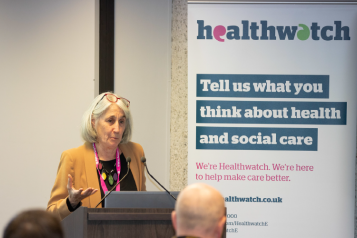National Stress Awareness Day: 4 November

With the recent government announcement of a second lockdown on the 5 November, it is natural that we may all be feeling more stressed out, and therefore it is even more important to look after our own health and wellbeing. You can follow the links below which will give you up-to-date information on the current situation:
- Find local community help or more information in Dorset and Bournemouth, Christchurch & Poole
- Read online the latest advice and information about coronavirus from NHS England and from NHS 111 to check if you have coronavirus symptoms.
- Look after your wellbeing while staying informed.
Triggers of stress
Whether it’s related to money, health, housing, relationships, uncertainty, or otherwise, there is no shortage of potential triggers for stress in the modern world.
Sometimes the build-up of a series of small pressures can lead to feelings of stress even when a distinct cause is tricky to define, and sometimes your wonderful housemates have simply filled up the sink with dishes rather than emptying the dishwasher… again! Food and mealtimes need not be part of the list, and can even be used to alleviate possible stressors.
Mindfulness and mindful eating
Mindfulness training was once thought of as some kind of alternative, hippy pursuit, but is rapidly gaining acceptance as a robust evidence-based practice that can help some people deal with stress, dietary issues, and everyday living.
Mindful eating involves paying purposeful attention to the sight, sound, smell, touch and taste of food. If you’re curious about what this means (and have a couple of raisins in your cupboard), then follow this link and give a classic mindful eating exercise a try. Wine-tasting is a better-known practice that draws some parallels, but consuming your grapes in that form is only recommended in moderation!
Research has indicated that a mindful raisin-eating exercise can lead to a higher expectancy of liking for initially disliked foods (1), that is, people were likely more open-minded about trying certain foods after the brief intervention.
Furthermore, for the parents amongst you, another recent study found that after a brief mindfulness exercise, children aged 3-10 years ate higher amounts of typically disliked or unfamiliar foods (celery, cauliflower, and chickpeas in this case) compared to a control group (2). So if picky eaters at the table are stressing you out, then it could just be worth a go!
Two specific mindful eating techniques, eating with awareness and eating without distraction, have even been linked with a reduction in depressive symptoms (3). While the link between depression and nutrition is a complex issue, the authors of the study suggest that decreased energy intake could be the mechanism responsible for mindful eating tending to reduce depressive symptoms.
Stress and weight management
Cumulative exposure to multiple stressors has been linked with increased likelihood of being obese (4), and obese people have been found to have higher levels of cortisol (5), a primary stress hormone that also serves other metabolic functions.
Fear not however, help is at hand if your weight is stressing you out. Second Nature are a digital-based organisation whose fundamental mission is ‘to help the world build healthy habits’, with a specific focus on providing people with the mental tools to guide them through a sustainable weight-loss journey.
They steer clear of traditional crash-diet, calorie counting methods in favour of lasting, evidence-based behavioural changes with achievable goals, educational content, and social support at the heart of their programme.
This is the first online habit change programme to be commissioned by the NHS with individual daily support provided by registered dieticians and nutritionists. You must be over 18 and have a body mass index (BMI) of over 21 to enrol on the programme, and if that doesn’t include you then they have an abundance of informative resources under the guide tab on their website too.
Locally you may also reach out to LiveWell Dorset who supports you on your journey to a happier, healthier you through free advice and coaching.
Stress from inaccessibility to food
Without wishing to trivialise the multifaceted manifestations of stress (see dishwasher rant above) perspective can be an important tool in its mitigation.
If you ever feel stressed but have reliable access to safe food, an equipped kitchen, electricity, and at least some rudimentary cooking skills, then try to take a moment to enjoy those luxuries that aren’t readily available to everyone.
One recent study suggested that when people think they have limited access to healthy foods specifically, they become stressed due to feelings of helplessness (6). To that end, The Trussell Trust are a nationwide group that support over 1,200 food banks, they work with nutritionists and strive to provide at least three days of balanced meals in each individual or family parcel.
Furthermore, many, including Bournemouth Foodbank, are incorporating fresh, perishable foods where possible. If you need some support then you can search by postcode to find your closest food bank and you can get involved, by giving, campaigning, or volunteering.
We thank Richie (who is studying a Masters in Nutrition and Behaviour at Bournemouth University) for his contribution of this article for National Stress Awareness Day. If you would like to get in touch with Richie for further information you can contact him directly on Twitter @Nutrichie1.
If you have been affected by stress you can find out more by visiting the ISMA website or contact us.


